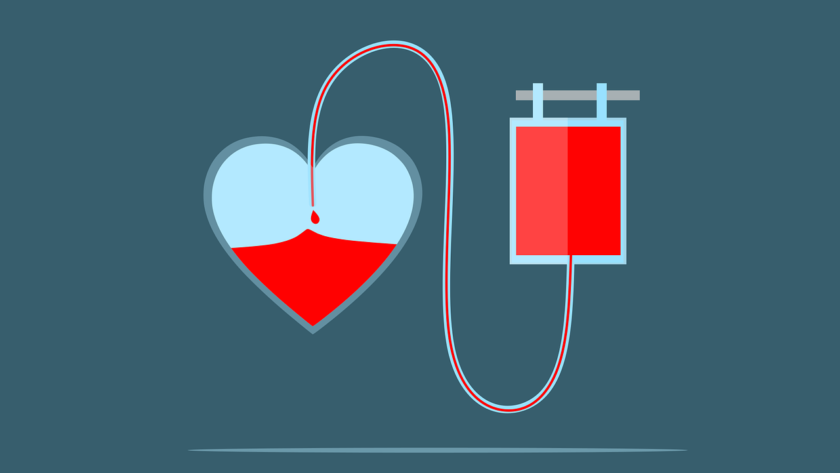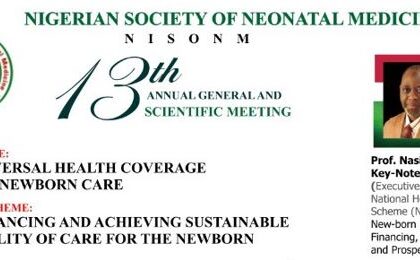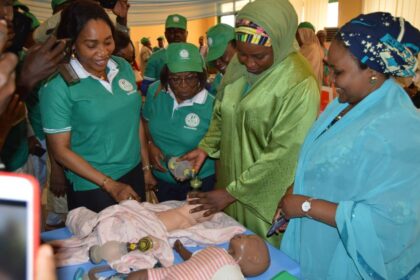Celebrated on the 14th of June each year, the World Blood Donor Day aims to create awareness about the need to donate blood and blood products to save lives. The slogan for this year World Blood Donor Day is “Donating Blood is an Act of Solidarity. Join the effort and save lives”. In joining people around the world to celebrate this day, we’ll be considering the use of blood and blood products in neonates.
What is Blood? Blood is a fluid that constantly circulates round the body and provide the cells with nutrients and oxygen and also removes waste products. Blood is also involved in healing and fighting foreign bodies. Blood is very essential for life.
What are Blood Products? According to WHO, a blood product is any therapeutic substance derived from human blood, including whole blood and other blood components (red blood cell concentrates, platelets, white blood cell and plasma) and plasma derived medicinal products ( clotting factors, immunoglobulins, albumin etc.).
Who Can Donate Blood and Who Can Receive Blood
Before blood is transfused, the blood group of the donor and the recipient is checked first using the ABO blood group system. Together with the Rhesus factor, there are in total 8 blood groups in the ABO blood group system.
| Donor | Recipient |
| O+ | O+, A+, B+, AB+ |
| O-( Universal Donor) | O-, O+, A+, A-, B+, B-, AB+, AB- |
| A+ | A+, AB+ |
| A- | A-, A+, AB+, AB- |
| B+ | B+, AB+ |
| B- | B-, B+, AB+, AB- |
| AB+( Universal Recipient) | AB+ |
| AB- | AB+, AB- |
Eligibility to Donate Blood
A person who wants to donate blood should:
- Be between 18 and 65 years old
- Be healthy. A sick person or someone who has a tatto or body piercing for less than 12 months since the procedure cannot donate.
- • Weigh at least 50kg
- Never have injected recreational drugs or engaged in risky sexual activities in the last 12 months
- Not be pregnant or breastfeeding. After childbirth, its is advisable to wait for at least 12 months before donating blood.
Types of Blood Donation
- Whole blood donation. This is the donation of all the components of blood, blood as whole. Commonly given to trauma patients, anaemic patients and patients going through surgical procedures.
- Red blood cell donation. Only the red blood cells are donated or transfused in this procedure. Important in treating severe cases of anaemia, including sickle cell anaemia, transfusion to neonates and emergency transfusions.
- Platelet donation. An apheresis machine is used to separate platelets from whole blood and the treat is returned back to the donor. Useful in the treatment of cancers, organ transplants and surgical procedures.
- Plasma donation. Plasma is a component of blood that does not contain cells hence it can be given to anyone regardless of blood group.
Uses of Blood And Blood Products in Neonates
There are many cases and conditions in which blood and blood products are useful in the newborn including:
- If the newborn was given birth to prematurely.
- Anaemia and anaemic diseases due to various causes eg inherited blood and bone marrow disorders.
- Inherited disorders of haemoglobin and immune deficiency conditions.
- Cases of blood loss and bleeding disorders
- Jaundice.
- During surgery and surgical procedures.
- Treatment of some cancers.
Blood Donation Myths: A few include:
- If I donate blood, I’ll fall sick. Donating blood does not make you sick if you’re already healthy, as just a small fraction of your blood is collected and the body will produce more to replenish the blood lost.
- Older people cannot give blood. As far the recommended age bracket for a blood donor is 18- 65 years, persons older can still give blood especially if they have given blood in the last 2 years.
- People taking any type of medication cannot donate blood. There are some medications that can hinder one from donating blood e.g. anticoagulants, antibiotics (people taking antibiotics should wait till 12 hours after the last dose), antiplatelets, acne treatment (eg Accutane), hair loss remedy(Propecia), Hepatitis B Immune Globulin, Human-derived growth hormone, medications for prostate symptoms (Proscar, Jalyn), medications for psoriasis and relapsing multiple sclerosis, Insulin from cows. Aside form these, you can very much donate.
- Giving blood is time-consuming. The whole process takes only about an hour.
- I might contract an infection if I give blood. Although there is a chance of this happening if the health personnel is careless, this rarely or even ever happens because new sterile instruments are used and it is done in a clean environment.
Donating blood is very essential and important as there are very few alternatives for neonates who require blood and safe blood can only be gotten from a human.
Don’t think it won’t be useful or that you’re wasting your time: The blood you donate today can be what will save one newborn babies’ life.
Visit a hospital, health centres, blood banks, NGOs like Red Cross to give blood and remember to rest properly, eat well, make sure you’re eligible to donate blood and wear a short sleeve clothing to allow for easy access. It doesn’t just stop here, you can give blood for at least 2-3 times a year.
NOT ALL HEROES WEAR CAPES.
GIVE BLOOD TODAY, SAVE LIVES!.
By Igwe Ezinne Esther
References
- The American Red Cross Blood services. Types of blood donation(https://www.redcrossblood.org/donate-blood/how-to-donate/types-of-blood-donations.html )
- World Health Organization. World Blood Donor Day 2022(https://www.who.int/news-room/events/detail/2022/06/14/default-calendar/world-blood-donor-day-2022 )
- World Health Organization. Blood products (https://www.who.int/health-topics/blood-products#tab=tab_1 )
- The American Red Cross Blood Services. Myths about donating blood(https://www.redcrossblood.org/local-homepage/news/article/myths-about-donating-blood.html )




